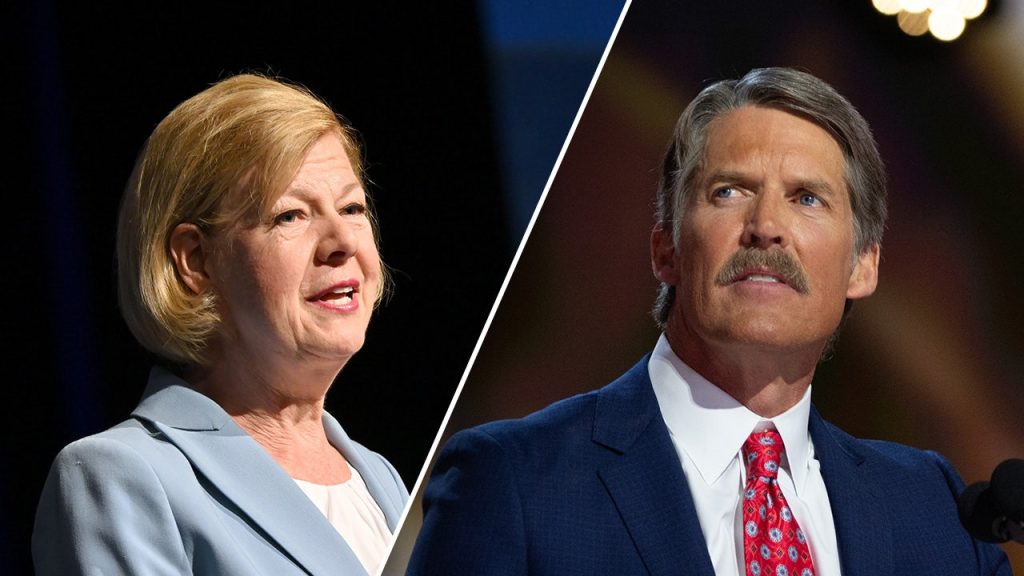Businessman Eric Hovde won the Republican nomination for Senate in Wisconsin, setting up a competitive general election against Democratic incumbent Sen. Tammy Baldwin. Hovde, who was endorsed by former President Trump, has already spent a significant sum on his campaign and easily defeated other challengers in the primary race. One of his opponents, Charles Barman, a farmer motivated by the riots in Kenosha, Wisconsin, following the police shooting of Jacob Blake, argued for voting for change. Another challenger, Rejani Raveendran, highlighted her personal experience of poverty as a differentiating factor from Hovde’s wealthy background.
As the Republican nominee, Hovde positioned himself as the candidate to bring change and turn around the current state of affairs. Despite not officially being chosen as the nominee, outside groups on both sides have engaged in promoting or attacking his candidacy. Hovde, who recently spoke at the Republican National Convention in Milwaukee, criticized Baldwin as a “rubber stamp” for President Biden, emphasizing the differences in their policy approaches and their impact on the lives of Wisconsinites. Hovde’s campaign is shaping up to be a high-profile and hotly contested race against Baldwin.
On the other side of the aisle, Senator Tammy Baldwin ran unopposed in the Democratic primary, securing her nomination without facing any challengers who could have potentially weakened her standing going into the general election. In her statements following the primary, Baldwin focused on her commitment to lowering costs for families, supporting American jobs and manufacturing, and protecting reproductive freedoms. She contrasted herself with Hovde, portraying him as a wealthy bank owner from California who is disconnected from the lives and struggles of working people in Wisconsin.
The Senate race in Wisconsin is crucial, as it is one of several battleground states that could swing either way in the upcoming election. The Cook Political Report rates the matchup in Wisconsin as “Lean Democratic,” highlighting the competitiveness of the race and the potential impact it could have on determining which party gains control of the Senate. The stakes are high for both candidates as they seek to appeal to voters and gain support for their respective visions and policy platforms. The campaign is expected to be closely watched and closely contested as election day approaches.
The dynamics of the Senate race in Wisconsin are intertwined with broader national issues and trends, including the impact of President Biden’s policies, the legacy of former President Trump, and the diverging visions for the future of the country. Both Hovde and Baldwin face the challenge of navigating a polarized political landscape and appealing to a diverse electorate with varying priorities and concerns. Their campaign strategies will likely focus on highlighting their strengths, attacking their opponent’s weaknesses, and mobilizing their support base to turn out and vote in what is expected to be a tight and closely fought race.
As the campaign unfolds, voters will be looking for clarity on key issues such as healthcare, the economy, immigration, and national security, among others. The candidates’ ability to effectively communicate their positions on these matters, connect with voters on a personal level, and mobilize support from key demographics will play a crucial role in determining the outcome of the race. Ultimately, the Senate contest in Wisconsin is emblematic of the larger battle for control of Congress and the direction of the country, making it a closely watched and highly consequential race in the 2024 election cycle.















